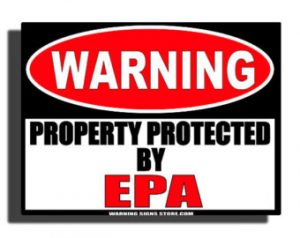 A Denver Post editorial evokes the Gold King “epic blunder” (of the Obama administration, least we forget) to criticize the agency’s present efforts to make Superfund actually work.
A Denver Post editorial evokes the Gold King “epic blunder” (of the Obama administration, least we forget) to criticize the agency’s present efforts to make Superfund actually work.
It doesn’t appear to be the actual recommendations to fix Superfund that the Post has a problem with, and aren’t discussed in any detail at all. Nor are the recommendations linked to the editorial, or in the articles linked to the editorial.
The Post and other reporters are upset that the EPA employees on the task force didn’t keep agendas or minutes of the meetings to compose the recommendations to turn over to an environmental group when they were finished.
And they’re mad that someone from the financial industry led the task force.
Had the suggestions been to bankrupt Superfund, abandon all the mines, or even cause pollution to create even more Superfunds (Hello Gold King!), we might understand their concern.
But here’s the actual EPA report with the 40 recommendations, and we see some pretty forward-thinking ideas, like:
Establishing an “Administrator’s Top Ten” list which will get his weekly attention.
Directing inquiry and resources as necessary to sites that have been on the NPL for five years or longer without a significant movement.
Publicizing site-specific information, including reuse fact sheets to inform the community and developers about properties with reuse potential.
Engaging communities in identifying cleanup and reuse opportunities.
Implementing early response actions at selected portions of sites.
Utilizing state of the art technologies, including using conceptual site model technologies at ten NPL sites.
We know community involvement is a pretty radical idea for environmentalists, who prefer they were the only ones at the table.
But if this report is any indication, it looks like regular employees can come up with some pretty good ideas when given the chance.
We doubt that a court reporter transcript or copies of doodles on agendas would reveal evil doings behind ideas to use newer technology to clean up the environment.
